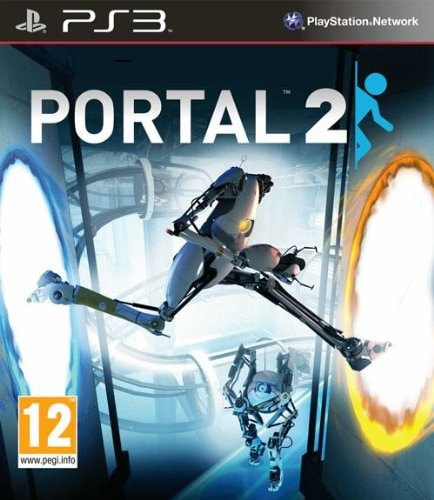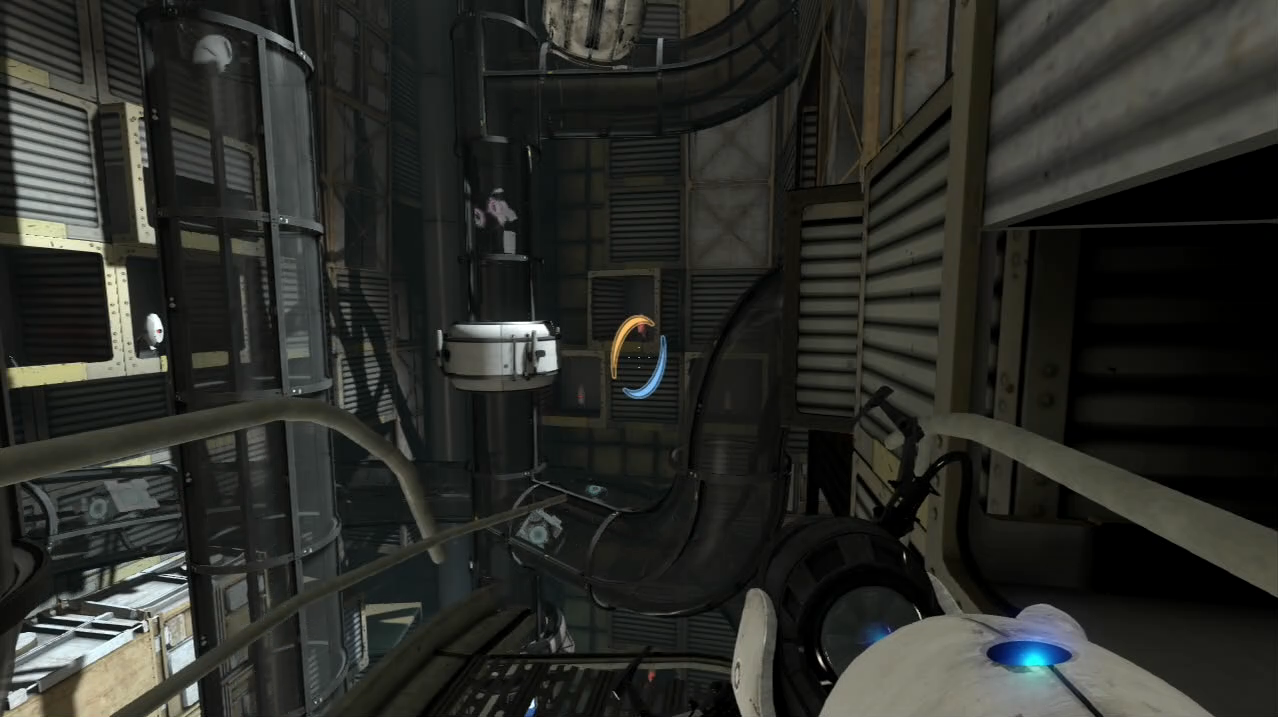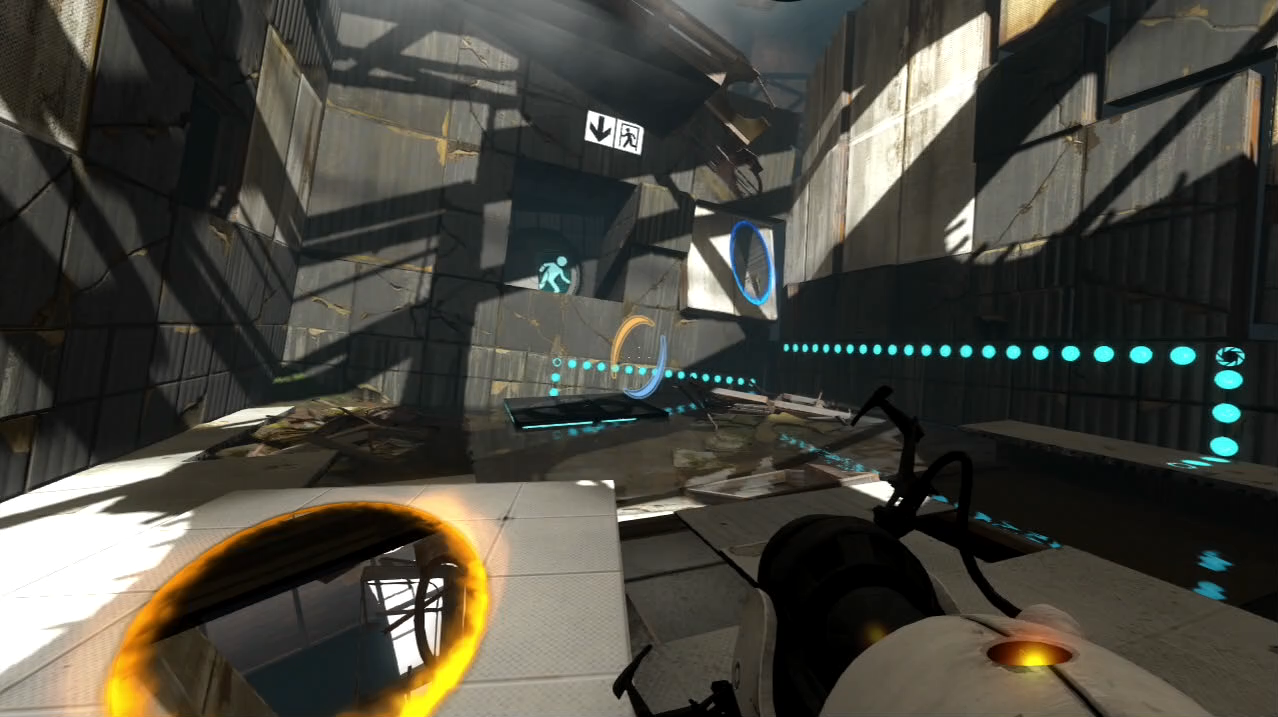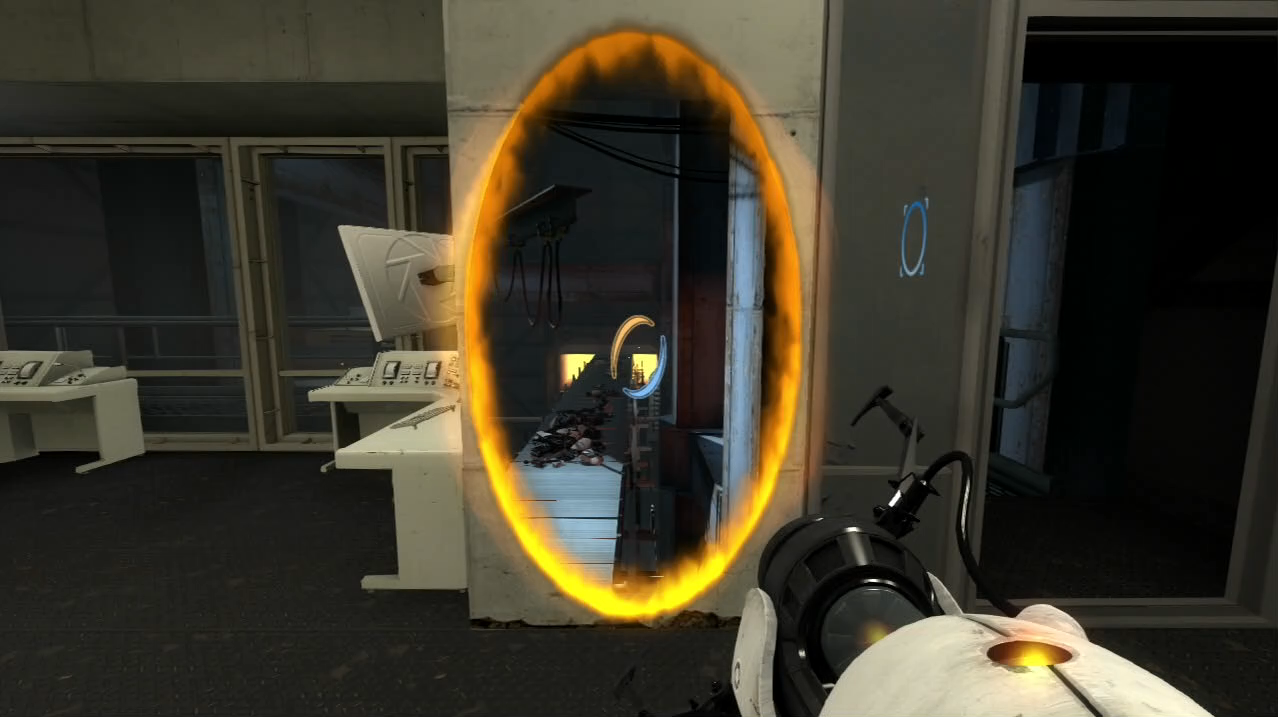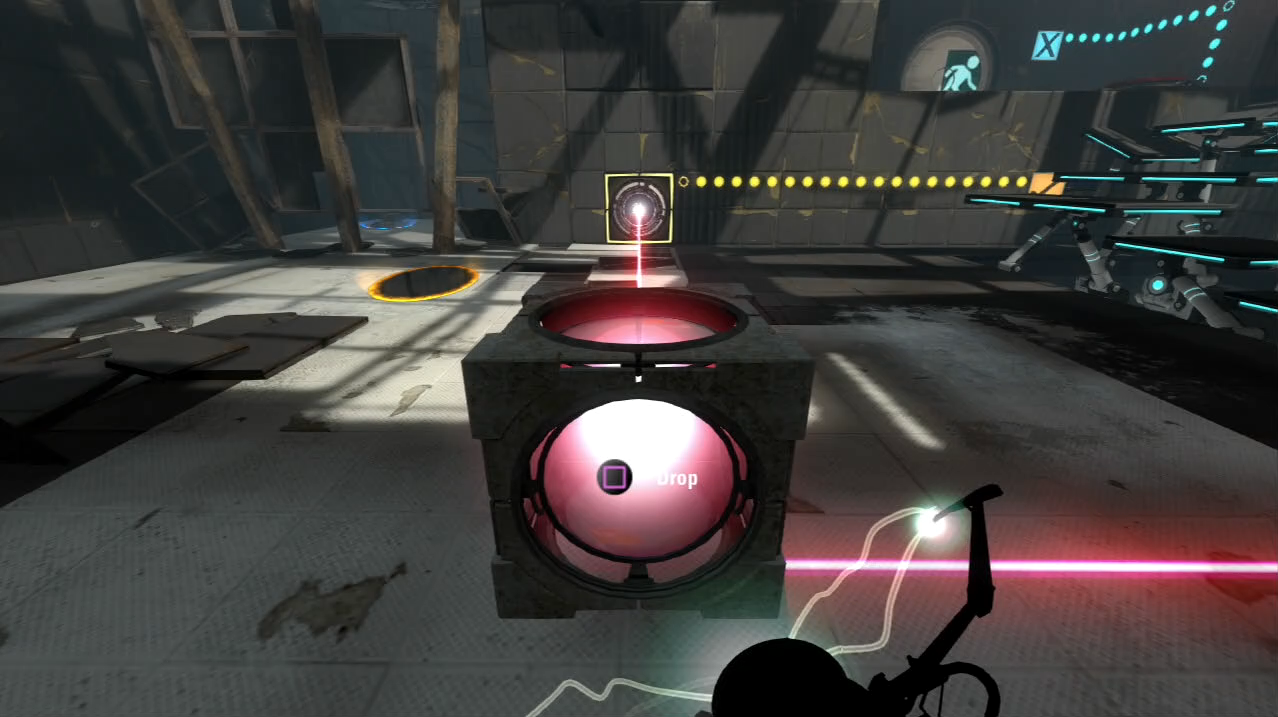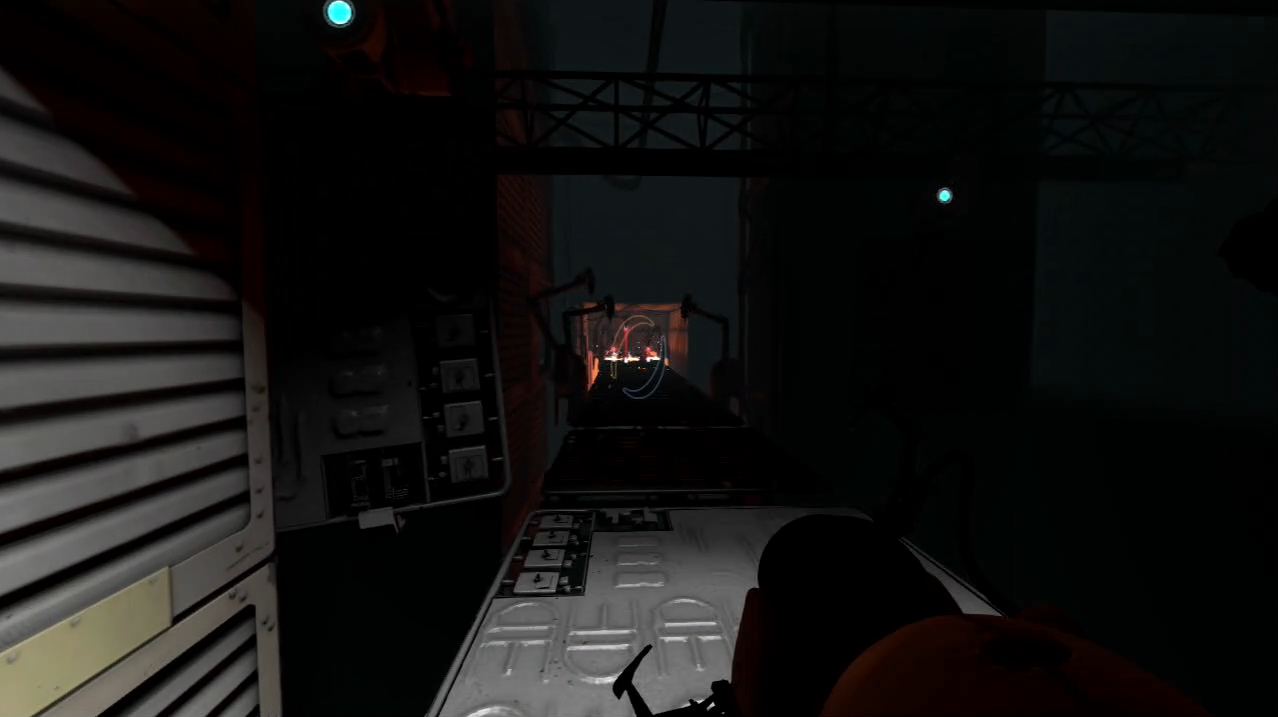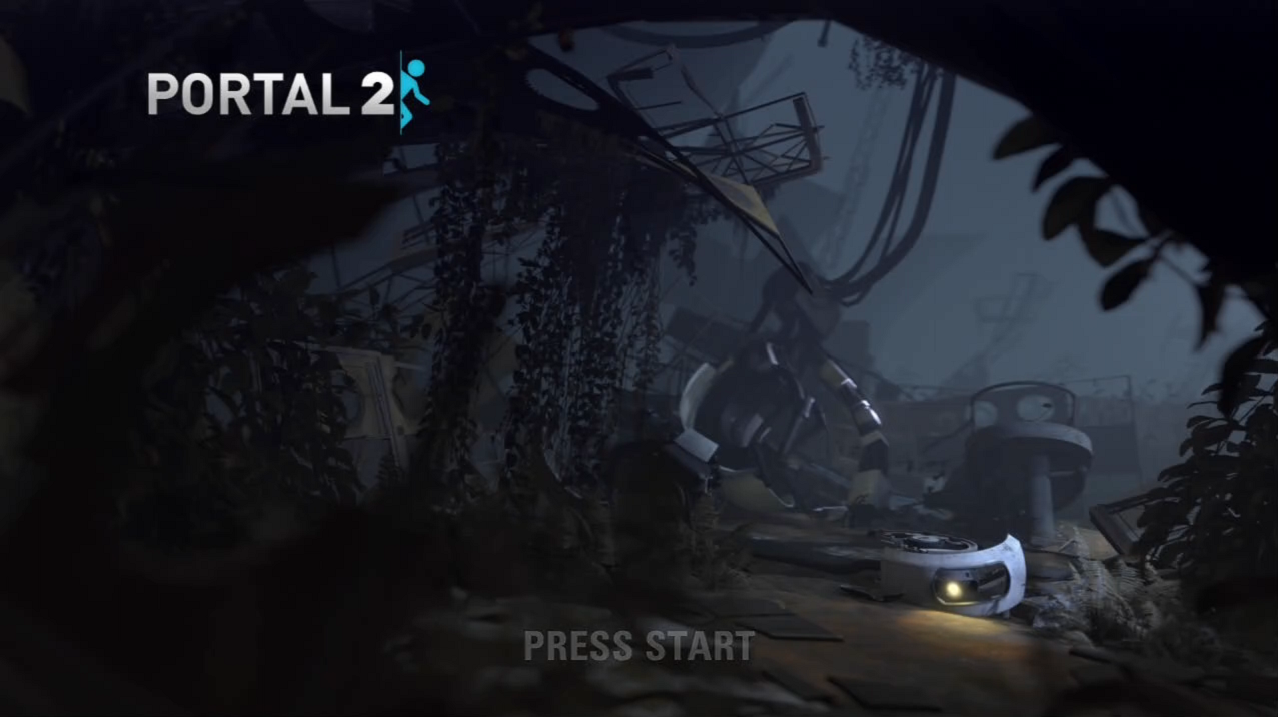PORTAL 2 (PS3)
Whether we're talking Tetris, Street Fighter II or Final Fantasy VII, the most memorable video games have all struck a chord with their audiences in much the same way. Most often, what stays with a player is, purely and simply, the enjoyment factor; after all, the best games were always the most fun. We're also compelled by technological breakthroughs, as well as affecting storylines that tug at the player's emotions. As world-beating games go then, Portal 2 must therefore be considered a little different. The feelings most predominantly affected whilst playing this magnificent puzzler are those of admiration, and of satisfaction, towards its incredible, devilish concept.
Portal 2 doesn't simply represent a step forward for 'clever games', it extols the strengths of gaming as a progressive media in its own right. Even the best of modern gaming has sought to garner artistic recognition through trying to emulate the cinematic feel of a film, the narrative tone of a good book, even the 'Season Pass' binge culture of TV boxsets. P2 flips this copycat train of thought completely on its head, reminding us not only of how adventurous and smart the medium of gaming can be, but making you wonder how on earth any other form of media ever hope to emulate so compelling a concept without the unique benefits of interactivity.
A first-person puzzler, Portal 2 begins as central protagonist Chell is awakened from an indeterminate spell in cryogenic sleep, by the neurotic, eager-to-please A.I. sphere Wheatley. Right from the get-go, you're treated to Portal 2's marvellous, free-flowing humour. Set in a post-societal future that's in equal measures sinister and comical, it's one of the maturest, most successful attempts to inject legitimate humour and social comment into a video game without it feeling obvious or forced. It utilises some fantastic dialogue, elements of slapstick and some more subtle (and occasionally gaming-specific) funnies for good measure. Even the intro, which seeks to acclimatise the player to the basic functions, is great, as Wheatley prompts the player to “Say Apple” via pressing X. Instead, the button results in Chell jumping, leading to the A.I.'s concerned mutterings as to her mental well-being.
Chell is once again forced by GLaDOS, the rebooted, grudge-harbouring, homicidal A.I., to face another round of deadly test chambers. It is of course the Portal gun that makes the game what it is. The device can create up to two portals simultaneously, as they essentially act as 'entry' and 'exit' points on the various walls, floors or ceilings of the chambers, with the idea being that walking through one will see you emerge through the other. So, in its simplest sense, crossing a chasm can be achieved by placing a portal in the wall next to Chell, and one on the other side of the drop, allowing the player to move freely between the two.
Chell is once again forced by GLaDOS, the rebooted, grudge-harbouring, homicidal A.I., to face another round of deadly test chambers. It is of course the Portal gun that makes the game what it is. The device can create up to two portals simultaneously, as they essentially act as 'entry' and 'exit' points on the various walls, floors or ceilings of the chambers, with the idea being that walking through one will see you emerge through the other. So, in its simplest sense, crossing a chasm can be achieved by placing a portal in the wall next to Chell, and one on the other side of the drop, allowing the player to move freely between the two.
If the initial sequences seem a little familiar for fans of the original, then not to worry, the game really grows as the action moves beyond basic test chambers and plays witness to snippets of the morally corrupted Aperture Science Enrichment Centre and their luring hard-up civilians into becoming test subjects. As things grow steadily more interesting from a narrative perspective, the game also comes to fully-realise the Portal concept in its puzzles. Add to the mix blocks that can deflect laserbeams (including through portals), timed switches, bounce pads that see the player having to move inanimate objects through portals (often at a distance) and even a colourful paint-like substance that must be directed on to walls in order for them to hold portals, or used to create slippery launch pads, and you’ve just a taster of the remarkable, endlessly clever, endlessly satisfying array of puzzles that, despite the considerable complexity, never feel unfathomable. There’s a bunch of tricky teasers in here, but none are absurdly difficult. It's mesmeric stuff.
The one-player is terrific, and the co-op mode is little short of genius as well. Here, players can team up online or, even better, in person via two-player split-screen. Playing as robots Atlas and P-Body, players are challenged to expand their understanding of the possibilities that four portals can present, frequently helping each other with the timing and placement of new ones. All the while, GLaDOS is being GLaDOS, gleefully sewing the seeds of discontent in her own inimitable fashion. It’s a a sizeable, purpose-built campaign and one of the best instances of co-op to have come from the seventh gen.
The one-player is terrific, and the co-op mode is little short of genius as well. Here, players can team up online or, even better, in person via two-player split-screen. Playing as robots Atlas and P-Body, players are challenged to expand their understanding of the possibilities that four portals can present, frequently helping each other with the timing and placement of new ones. All the while, GLaDOS is being GLaDOS, gleefully sewing the seeds of discontent in her own inimitable fashion. It’s a a sizeable, purpose-built campaign and one of the best instances of co-op to have come from the seventh gen.
Boxes are your friends. Lasers... not so much
Graphics and sound both take a relatively minimalist approach, and are of a very high standard. The white wash test chambers opt for functionality over pyrotechnics (this is a puzzle game, after all), but they're sharp, clearly defined and extremely fluid, something that remains the case in the latter part of the game as environs become more adventurous in their scenic detail. The voicing is A1; GLaDOS’s dialogue is enduringly macabre (“When you die, I’m going to laminate your skeleton and pose you in the lobby”), frequently funny (“I’m afraid you’re about to become the immediate past president of the Being Alive club”) and always compelling. Bumbling robot sidekick Wheatley, voiced by Stephen Merchant, is a fantastic foil to the super-computer.
Consistently creative, endlessly satisfying, and finished to such a fantastic level of quality that it’s difficult to see how Valve could have sought to have made the Portal 2 experience any more of a success than it already is. A memorable, superbly-designed and fantastically scripted story is ably backed by a first-rate co-op campaign and free DLC. There's no simpler way to look at it than this though: it's the audacious idea that hooks you, and the flawless realisation that will stay with you.
Consistently creative, endlessly satisfying, and finished to such a fantastic level of quality that it’s difficult to see how Valve could have sought to have made the Portal 2 experience any more of a success than it already is. A memorable, superbly-designed and fantastically scripted story is ably backed by a first-rate co-op campaign and free DLC. There's no simpler way to look at it than this though: it's the audacious idea that hooks you, and the flawless realisation that will stay with you.
